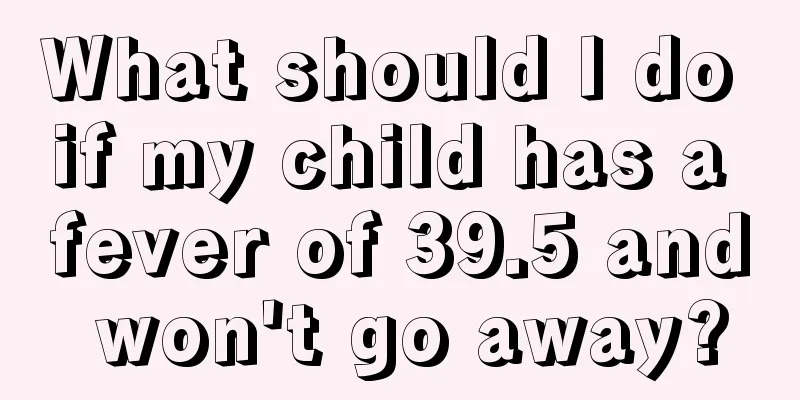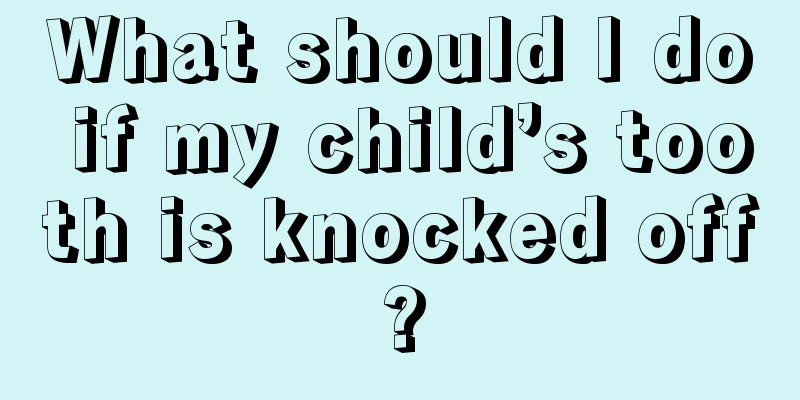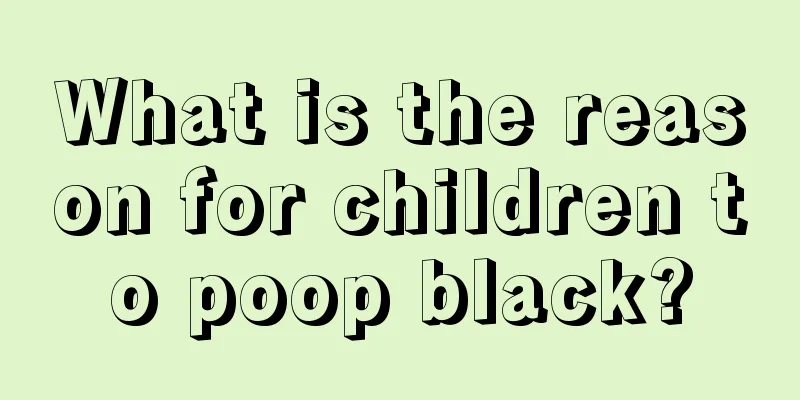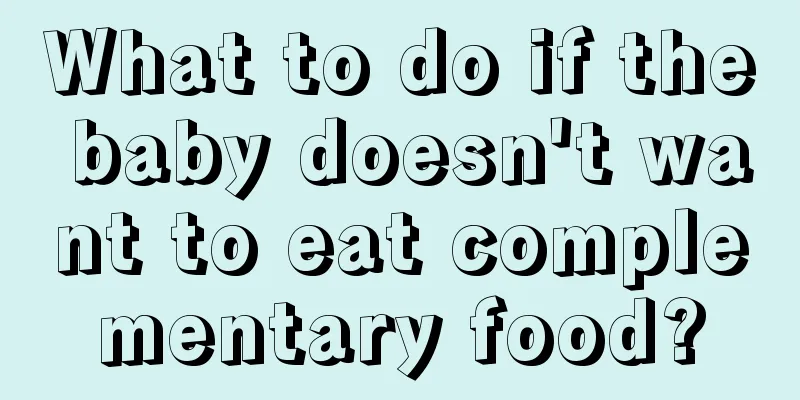At what age should you train your baby to urinate and defecate?

|
Many parents are very troubled by their children's urination and defecation. This needs to be taken seriously. Otherwise, the children will not be able to urinate and defecate independently, which will affect their growth and development. Therefore, it is better to train your baby to urinate and defecate as early as possible. It is better for parents to adopt encouraging training methods. Step 1 – Assess your baby’s readiness Most people start potty training their children around age 2, but some children may not be ready until age 4. Watch for the right cues, such as imitating others' toilet habits, and don't pressure your baby before he's ready. Go through a basic checklist to see if he's ready. Step 2 – Buy the right equipment This is the first and most important step. You need to buy a potty that is suitable for children, or add a special child-friendly toilet seat to your regular toilet. Whichever you choose, make sure your baby is able to sit firmly with both feet on the ground so that he can push harder when he has a bowel movement. You may also want to get your baby a book with illustrated instructions, or a video/DVD to get him interested in potty training, if you can find one. Step 3 – Create a Routine Have your baby sit on the potty with his pants off once a day, after breakfast, before a bath, or any time he's likely to have a bowel movement. This will get him used to the potty and make it a part of his daily routine. It's okay if your baby doesn't want to sit on the potty. Be sure not to force him or push him there. Especially if your baby seems a little scared, don't push him. Whether your baby is unwilling or afraid, it's best to remove the potty, or at least put it aside until a few weeks or a month later. If he is willing to sit, that would be best. However, at this age, don't try to explain to your baby why he should use the potty; just get him used to it. Be sure to keep the potty somewhere easily accessible, and since it's portable, your baby can use it anywhere in the house. Step 4 – Get rid of the diaper Have your baby sit on the potty without a diaper. Again, this is to get him used to the feeling of sitting on the potty this way. At this point, you can start explaining to him that this is what mom, dad, brother, and sister do every day. In other words, taking off your pants before squatting on the toilet is an adult behavior. If the baby understands and pees or poops, that's best. But don't force him to do it. You still have to wait until he's ready and shows a clear interest in using the toilet on his own. Step 5 – Explain the process It may also help to show your child what to do with his poop. Next time your baby has his diaper changed, take him to his potty, sit him down, then untie his diaper and drop the poop into the potty. This helps your baby associate sitting with convenience. Once you've emptied his potty contents into the big toilet, let him flush it if he wants so he can see where it goes. But if he's afraid, don't force him to do it. Teach your baby to put on his pants and wash his hands after going to the bathroom. |
<<: What foods can help children with eczema get better quickly?
>>: Why does the baby cry before urinating or defecating?
Recommend
Is hernia in children congenital?
I believe that many mothers do not know the cause...
Treatment of allergic asthma in children
Asthma is a relatively stubborn disease, and pati...
What should I do if my baby has a cough, phlegm and a sore throat?
When a child has a cough, it is sometimes caused ...
What should I do if my baby has repeated colds?
Babies are a relatively vulnerable group among ou...
What to do if your child has buck teeth
Buck teeth often make people around you laugh at ...
How to use medicine for pneumonia in children
We know that children's physical health is an...
The dangers of picking ears in children
Many parents like to clean their children's e...
Treatment for baby's constant shaking of head
Nowadays, it is not uncommon to see babies shakin...
Why does the baby blink so hard?
It is normal for children to blink their eyes, be...
Why is the child's stool green?
By observing the color of the baby's stool, w...
Why does my child's heel hurt?
Many children usually have heel pain. This is als...
What is the fastest way to relieve itching in children?
Summer is the season when mosquitoes are prevalen...
What are the symptoms of acute tonsillitis in children?
Acute tonsillitis is more common in children. Com...
46-day baby development indicators
Babies are young and in the process of continuous...
Solutions for children's hair loss
Recently, many children have had the problem of h...









